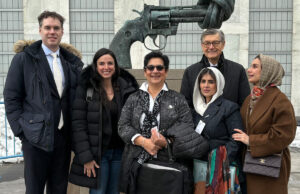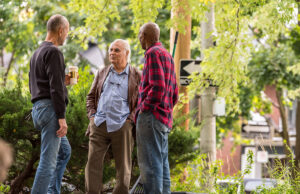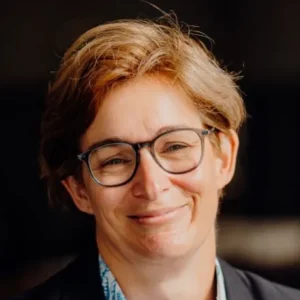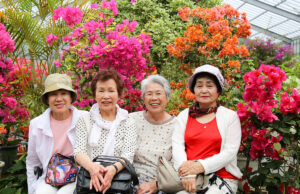How Can We Help Older Adults Help Us?
Let’s join forces with older adults to change the world, writes President & CEO Katie Smith Sloan.
Last week, the Global Ageing Network offered a much-needed “breath of fresh air” to participants of its 2021 Summit—including me.
Of course, the COVID-related challenges we’ve all faced head-on since March 2020 were front-and-center during most sessions of the two-day virtual gathering. But there was also an important and refreshing focus on how we might turn tragedy into transformation by reinvigorating our pre-pandemic efforts to:
- Redefine what it means to grow old.
- Empower older adults to live meaningful and engaged lives, and protect their rights to dignity, respect, and self-determination.
- Fight the ageism that has permeated our global society for as long as we can remember.
I left the summit with an unshakable belief that we can and will accomplish all these goals. I felt a new appreciation for the ability of older adults to play an active role in improving their own lives and the lives of others. I felt inspired by the examples of older people around the world who are building resilience while crafting solutions to the challenges facing their communities.
I’m more certain than ever that we must view older adults as change agents in our communities, our countries, and our world. If we don’t accept and act on this important truth, we’ll surely limit our ability to create a better future.
So, how can we help older adults help us?
The summit gave me many thought-provoking answers to that question:
Instead of “doing for” older adults, we must listen to, work with, and walk alongside them. As Donald Macaskill, CEO of Scottish Care, wisely advised, we must challenge the presumption that we know best. Only then can we transform our field and what it means to grow old. That transformation starts with, in Donald’s words, “older adults taking responsibility and ownership of their power.”
In addition, we must be careful: Careful that our buildings, programs, and services don’t encourage dependency or compromise dignity because they focus too much on keeping older adults safe. Careful that our services and supports don’t create the kind of stigma that leads to segregation and ageism. Careful that our technology doesn’t cause social isolation because it reduces human interactions. That advice came from Emi Kiyota, an environmental gerontologist and founder of Ibasho, a global organization working to create socially integrated and sustainable communities that value older adults.
Finally, we must work together to promote healthy aging and to safeguard the rights of older adults. Marcus Riley, executive chair of BallyCara Australia spoke directly to this last challenge when he described two important opportunities taking place right now on the global scene:
- The Open-Ended Working Group on Ageing: Established by the United Nations General Assembly in 2010, this group is working to identify and address gaps in the existing international framework for protecting the human rights of older persons. The Global Ageing Network and other organizations around the world are encouraging the working group to take concrete actions that will help address and repair the fragility of human rights among the world’s older adults.
- The Decade of Healthy Aging: This new initiative, launched by the World Health Organization (WHO), promises to unite a broad range of stakeholders in improving the lives of older people, their families, and communities. During the next 10 years, WHO plans to focus its attention on 10 areas, including long-term care. This gives us a good opportunity to integrate our services and supports more closely with global efforts to make it possible for all people to enjoy a healthy aging experience.
The pandemic continues to teach us valuable lessons about the importance of strengthening the rights of older adults and giving every human the tools necessary for healthy aging. Now, we have an opportunity—and an obligation—to put those lessons into practice.
I hope you will educate yourself about these important global initiatives. Participate in them as much as you can. And then, join forces with older adults to change the world.
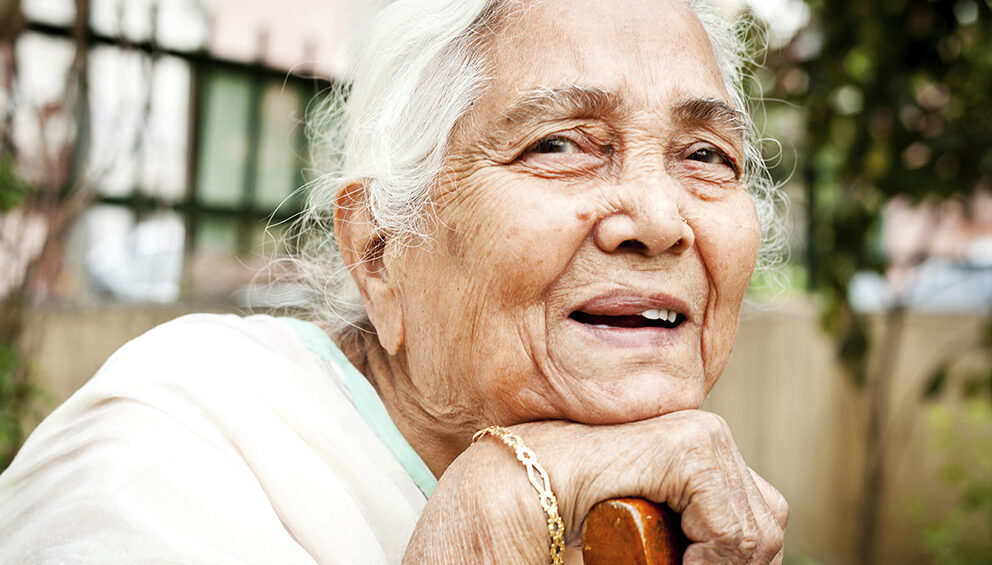
Recently Added
February 19, 2026
Statement to the United Nations: February 2026
January 22, 2026


